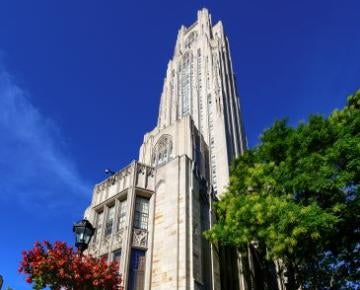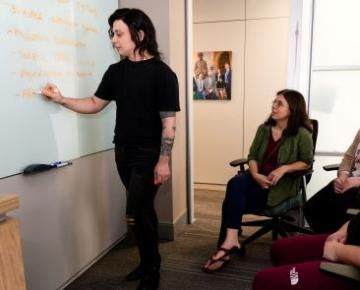The University of Pittsburgh’s Master of Social Work (MSW) degree offers students the opportunity to become transformative change makers by elevating their knowledge and honing their skill set to become licensed clinicians, community and system leaders, entrepreneurs, policymakers, researchers, and more.
The program offers a face-to-face option and a part-time online option.
Established in 1918, Pitt’s School of Social Work (SSW) prides itself on a celebrated history of providing students with high-quality training and professional development, preparing them to be capable and influential social work practitioners.
As a nationally-ranked social work program, our in-person MSW gives graduate students a top-tier graduate education where they can gain new skills, methodologies, and industry expertise needed to succeed as social workers and make impactful community advancements.
Apply Now to the In-Person Program
Apply Now to the Part-Time Online Program
MSW Program Mission and Goals
Firmly grounded in the purpose and values of the social work profession, Pitt’s MSW degree strives to prepare graduates with the necessary skills and knowledge to promote human and community well-being. Our objective is to teach students to be social workers who practice with a person-in-environment framework, a global perspective, respect for human diversity, and knowledge based on scientific inquiry.
The program’s mission reflects the social work profession’s values of service, social justice, the dignity and worth of the person, the importance of human relationships, integrity, competence, human rights, and scientific inquiry.
The MSW program prepares students to:
- Engage in evidence-informed advanced specialized social work practice within a multicultural society.
- Practice according to the principles, values, and ethics that guide the social work profession.
- Influence social policies with the goal of alleviating poverty, oppression, and social injustice, as well as advocating for human rights.
- Practice in a manner that enhances the quality of life for all persons, locally and globally, and that advances the struggle for social, economic, and environmental justice.
- Practice with cultural humility.





